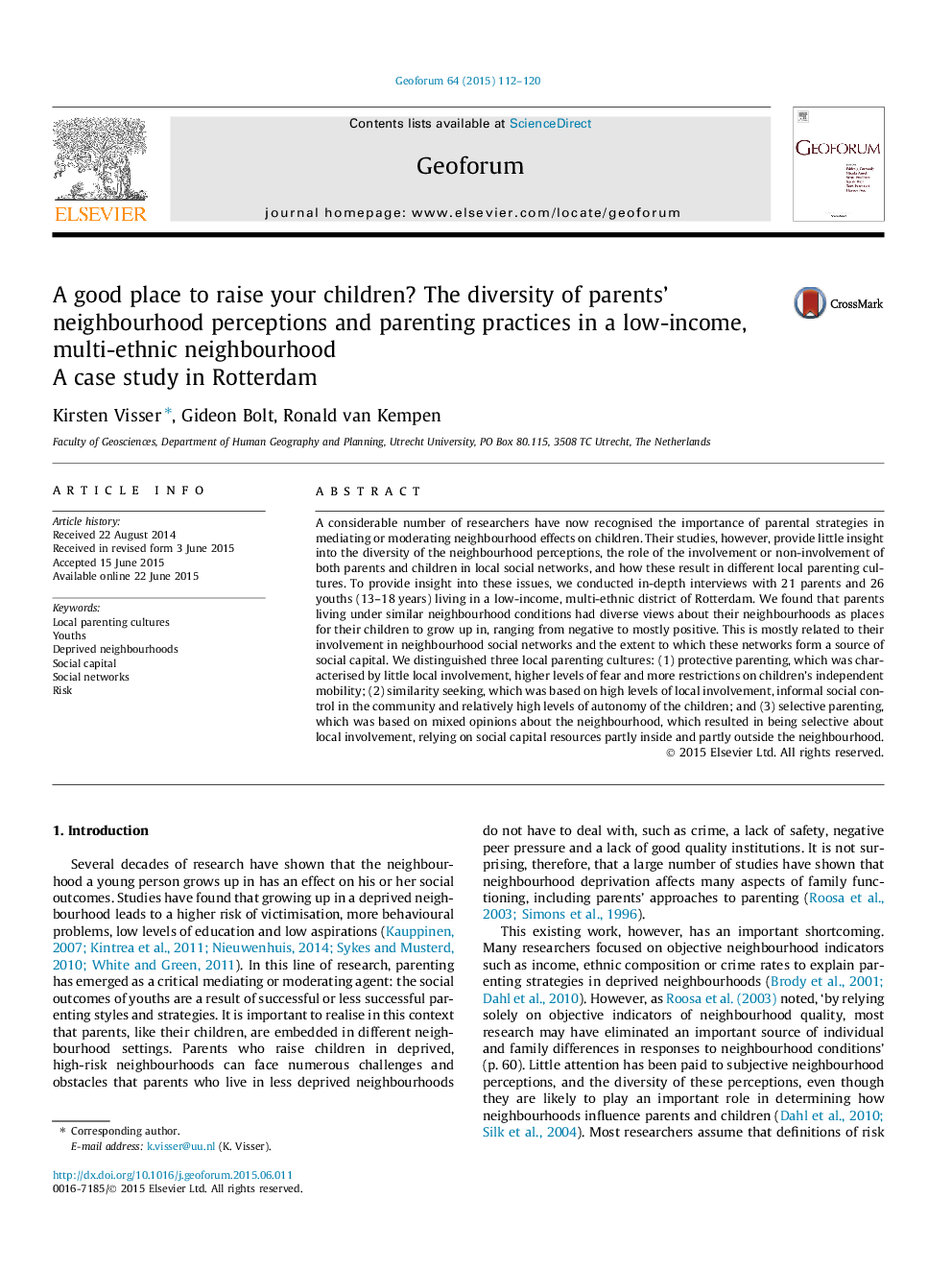| Article ID | Journal | Published Year | Pages | File Type |
|---|---|---|---|---|
| 5073674 | Geoforum | 2015 | 9 Pages |
â¢Parents living under similar conditions had diverse views about their neighbourhood.â¢Diverse understandings of what constitutes good parenting can coexist.â¢We can distinguish between protective parenting, similarity seeking and selective parenting.â¢Local networks and informal social control strongly influence parenting strategies.
A considerable number of researchers have now recognised the importance of parental strategies in mediating or moderating neighbourhood effects on children. Their studies, however, provide little insight into the diversity of the neighbourhood perceptions, the role of the involvement or non-involvement of both parents and children in local social networks, and how these result in different local parenting cultures. To provide insight into these issues, we conducted in-depth interviews with 21 parents and 26 youths (13-18Â years) living in a low-income, multi-ethnic district of Rotterdam. We found that parents living under similar neighbourhood conditions had diverse views about their neighbourhoods as places for their children to grow up in, ranging from negative to mostly positive. This is mostly related to their involvement in neighbourhood social networks and the extent to which these networks form a source of social capital. We distinguished three local parenting cultures: (1) protective parenting, which was characterised by little local involvement, higher levels of fear and more restrictions on children's independent mobility; (2) similarity seeking, which was based on high levels of local involvement, informal social control in the community and relatively high levels of autonomy of the children; and (3) selective parenting, which was based on mixed opinions about the neighbourhood, which resulted in being selective about local involvement, relying on social capital resources partly inside and partly outside the neighbourhood.
